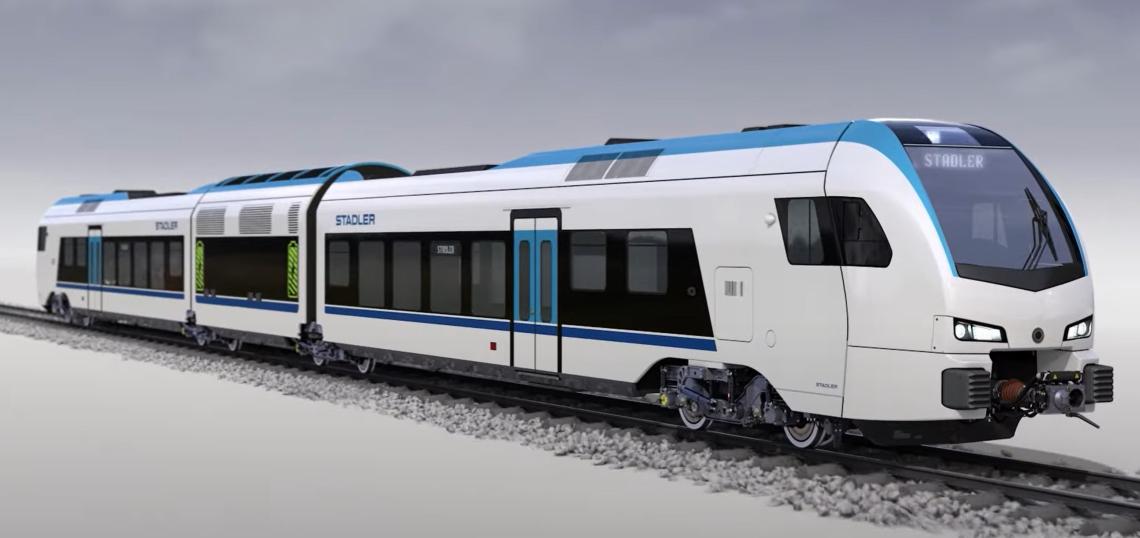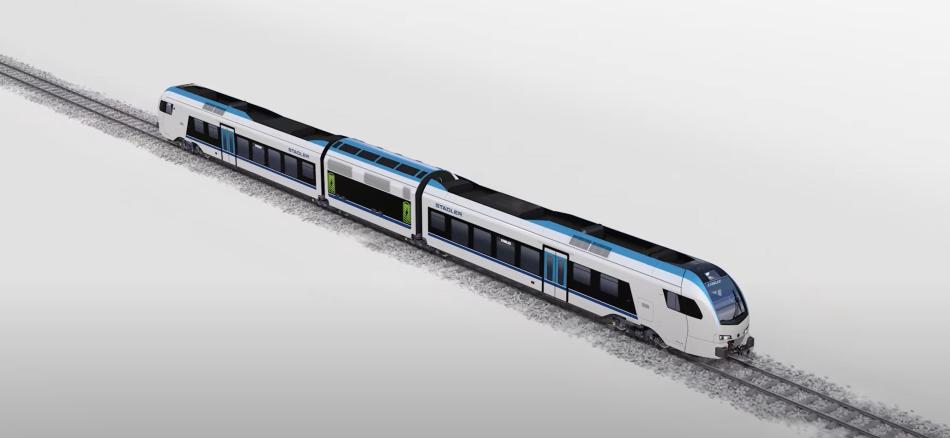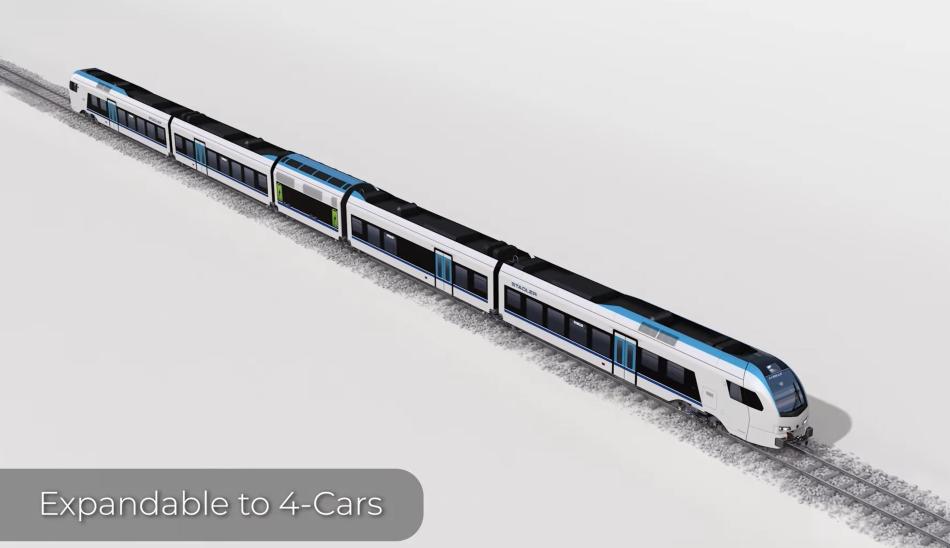Metra’s Board of Directors has approved a contract to buy zero-emission, battery-powered trainsets. Metra will be one of the first in the nation to operate this innovative technology.
“This purchase demonstrates Metra’s commitment to cleaner power, to quieter trains, and to thinking outside the box as we plan for our future,” said Metra CEO/Executive Jim Derwinski. “We are excited to bring this technology, and its efficiency, flexibility, and reliability, to Chicago and to our riders.”
A trainset is a group of permanently or semi-permanently coupled railcars powered by a propulsion system without a separate locomotive, with operator controls at either end so they can quickly change directions. The contract with Stadler U.S., of Salt Lake City, Utah, includes a $154 million base order for eight two-car, battery-powered trainsets, including engineering, training, and spare parts, with options costing up to an additional $181.4 million for eight more trainsets and up to 32 trailer cars, which could be added to the two-car trainsets to create three- or four-car trainsets.
Metra received a $169.3 million federal Congestion Mitigation and Air Quality Improvement (CMAQ) grant for the trainset purchase, which will cover the base order and some of the options. Funds from the state PAYGO program will pay for the grant’s required local match of 20 percent.
The trainsets will have low-level boarding and will be equipped with lifts to make them ADA-compliant. Each two-car set will seat 112 people, and each additional trailer car will provide seating for about 46 people. The single-level sets will have open gangways so riders can move freely from car to car. They will include such features as passenger information signs, bike racks, luggage racks and USB outlets. Half of the trailer cars, if purchased, would include ADA-accessible bathrooms.
A fully charged trainset is expected to have a range of 45 to 65 miles. Charging time will vary, but going from a 20 percent charge to 80 percent – enough for the trainset to operate – is expected to take about 20 to 30 minutes. The exact charging infrastructure and its cost is yet to be determined.
Metra believes the battery-powered trainsets could be a more economical and environmentally friendly way to provide the same level of service or better, particularly during off-peak times. They could play a significant role in helping Metra achieve its vision to provide more frequent all-day service – so-called regional rail service. The first sets are expected to be delivered in 2027-2028.
Metra plans to introduce the trainsets between LaSalle St. and Blue Island on the Beverly Branch of the Rock Island Line, a distance of 16.4 miles. That would directly benefit the air quality in economically disadvantaged neighborhoods on the South Side of Chicago and in the near south suburbs.
Buying the trainsets would allow Metra to retire some of its oldest, most polluting diesel locomotives, which are well beyond their useful life, and eliminate tons of carbon emissions. It would also allow Metra to retire some of its oldest railcars.
The procurement will meet Buy America requirements, with final assembly in Stadler’s Salt Lake City plant. Stadler has built and is building similar FLIRT (Fast, Light, Innovative, Regional, Train) trainsets for three other U.S. transit agencies, but those are powered by diesel engine gensets or hydrogen fuel cells rather than batteries. In Europe, it has built electric, diesel/electric hybrid, and battery-powered versions.










